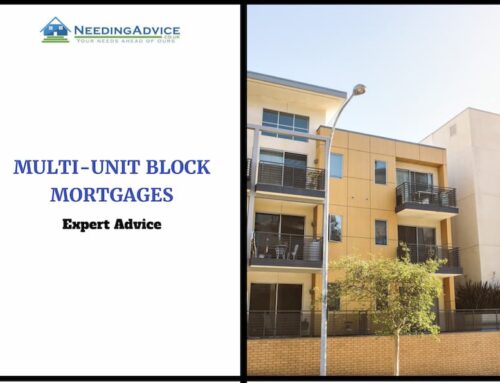Joint mortgage with a friend
Joint mortgage with friends is becoming more and more complicated in the UK. Getting a mortgage with a friend depends on different lending criteria. In this article, we will discuss it in detail.
Can friends have a mortgage together? In an age when taking on the huge commitment of a mortgage also seems a hill too far to climb, a financial burden shared with a friend would seem to offer many possibilities.
By sharing the responsibilities, you can pool your income, save faster for the deposit you’ll need, and be able to afford a bigger home in a better neighbourhood.
By splitting the cost of your monthly mortgage repayments and other bills, your money will go further, and instead of renting, you’ll get to own your own shared home.
Can I have a joint mortgage with friends?
Although the answer is a resounding yes, you’ll still have to bear in mind some of the additional difficulties you are likely to encounter in securing a joint mortgage with a friend – not least because you will probably have different incomes. One might be more capable than the other of meeting the financial commitment.
You will have some initial – critical – questions about whether your friend is someone with whom you get on well enough. For example, you’ll have to decide whether it’s possible not just to live in the same house together but also share in the ownership of the same home. Will the relationship withstand a joint mortgage with your friend?
How does a friends mortgage work?
A mortgage with friends in the UK is designed to let you borrow more than your single salary would typically allow with a mortgage that is secured against a home whose ownership is shared with a friend or friends.
Many lenders will permit shared ownershipA scheme where a borrower purchases a share of a property an... and a shared mortgage with up to a maximum of four individuals as parties to the same mortgage agreement.
When considering the application, those lenders will then typically take into account the two biggest salaries and base the offer on the amount of any mortgage advance on those incomes.
Suppose you are thinking of a joint mortgage with a friend or friends. In that case, you must remember that every person signing up for the loan is jointly and severally responsible for paying the fees to arrange the advance and making the monthly mortgage repayments.
That means that if one of the friends participating in your mortgage fails to make the necessary payments, you become responsible for doing so – your lender is entitled to demand payment from the remaining parties to the mortgage agreement.
Although the financial responsibilities are shared, it doesn’t mean that each share is necessarily equal. If there are just the two of you, for instance, you don’t necessarily each own a half of the property – you can agree on different, unequal shares.
But sharing the financial responsibility remains a very serious business that links your and your friend’s financial activities. Since you are in it together, it also means that whatever you do to affect your credit score or them to theirs has an impact on both of you. If they default on some other loan, for instance, it could affect your own credit standing the next time you make any such application.
Bearing all that in mind, when it comes to the formal process of applying for a joint mortgage with a friend, you’ll find that it follows more or less the same route as anyone else’s application. The main difference is that each party to any shared mortgage will need to meet and comply with the lender’s particular policies and requirements.
Since these will differ from one lender to another, you might want to engage the services of an independent mortgage broker for professional guidance.
Who can take out a joint mortgage?
There are no hard and fast rules about who can participate in a shared mortgage. Typically – and for obvious reasons – most are arranged by married or unmarried couples, including those in civil relationships. But these are by no means the exclusive participants. For example, in addition to a joint mortgage with a wife, husband, or civil partner, you might want one with:
- your boyfriend or girlfriend;
- a family member or relative;
- a friend or friends – up to a total of three others; or even
- a business partner.
Is it a good idea to get a get a multi-applicant mortgage with a friend?
We’ve already touched on the importance of your being certain that this is a friend – or friends – with whom you are not just sharing a living space but also the lasting ownership of your own home.
Even if you’re reasonably confident in the strength of the relationship – and your tolerance of each other’s habits – you might want to practice a trial run of living together for at least six months before entering the financial commitment of a shared mortgage.
What do I need to consider before getting a house with friends?
Your immediate concern will be the financial relationship you create with someone else from the moment you enter a mortgage agreement together. As we’ve mentioned, that relationship has the potential to affect the credit status of everyone involved in the shared mortgage. Be prepared to share details about your credit standing with your friends – with the reasonable expectation that they will also share theirs.
Seek legal and financial advice on the implications of any shared mortgage agreement you propose to enter. In particular, you might all want to agree on what happens if someone wants to leave the mortgage agreement – if they can no longer afford their share of the monthly repayments, for example.
You might also want to write your wills – to avoid any doubts in the event of your or a friend’s death.
Next Steps
A joint mortgage with a friend or friends can prove a way of easing that first step on the housing ladder.
Be aware of the several issues you need to consider before entering into any such agreement, however, and think about consulting experienced professionals such as ourselves here at NeedingAdvice.co.uk.
FAQs- Joint mortgage with friends
Can I get a mortgage with joint tenancy?
Yes. A joint tenancy allows two people to jointly own property without having to sign a deed of giftA document that transfers ownership of a property as a gift..... This type of arrangement is used in many countries around the world. It works like this: You buy the property outright and then transfer ownership to both yourself and your friend. Your friend does not have to pay anything for the purchase price. Instead, he/she pays rent to you.
If you are interested in getting a mortgage approved with joint tenancy, you can contact a mortgage adviser.
How do joint ownership mortgages work?
Joint ownership mortgages allow you to borrow money against a property owned by two or more people. The lender treats the loan as though it were made out to you alone. However, when you make payments on the loan, the interest is split between you and your co-owner.
The amount of interest paid depends on how much each person contributes towards the mortgage repayment. For example, If you contribute 50% of the total cost of repaying the loan, then you will receive half of the interest earned. If you contribute 25%, then you will receive one-quarter of the interest earned.
The remaining interest goes to your co-owner(s). Read more about mortgages for joint owners on our blog.
Is there an advantage to using a joint tenancy mortgage over a sole owner mortgage?
There are advantages and disadvantages to both types of mortgage. For example, if you decide to sell the house later, you may find that you cannot obtain a higher selling price because the other party to the mortgage is still living in the property.
However, a joint tenancy mortgage gives you greater flexibility than a sole owner mortgage. For example, you could make changes to the terms of the mortgage (such as increasing the term) without affecting the rights of your co-owner. Another advantage is that you can take out additional loans against the property without needing permission from your co-owner.
What are the risks associated with joint ownership mortgages?
When you use a joint tenancy mortgage, you become personally liable for the full amount of the loan. That means if you default on the loan, you could lose the home.
In addition, you must ensure that your co-owner has sufficient assets to cover their share of the loan. If they don’t, you could be responsible for paying off the entire debt.
You should also check whether your co-owner has any existing debts. If so, you may be required to help them clear these up.






